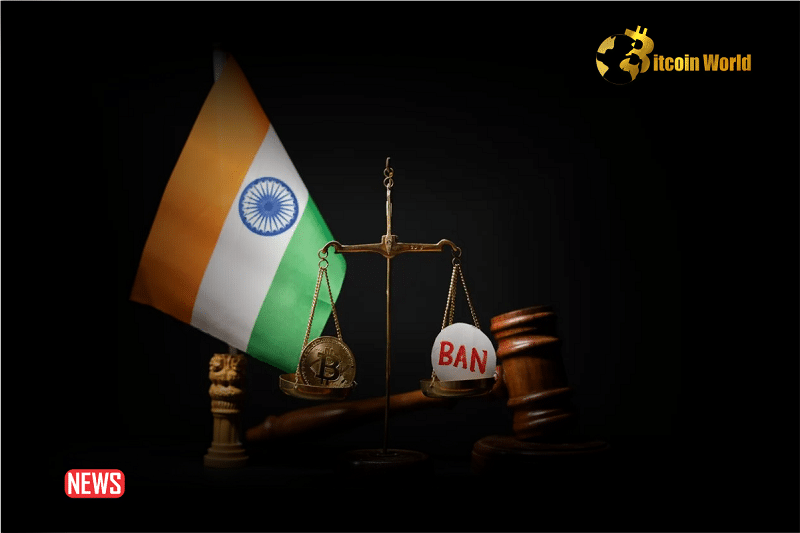Is the Indian crypto landscape heating up? Absolutely. If you’re involved in the world of digital currencies in India, recent news might have you sitting up straighter. The Financial Intelligence Unit of India (FIU IND) has just dropped a regulatory bombshell, issuing Show Cause Notices to nine significant offshore Virtual Digital Asset Service Providers (VDA SPs). Think of it as India drawing a firm line in the digital sand. Let’s dive into what this means for the crypto market and you.
Why is India Taking a Stricter Stance on Crypto?
To understand this move, we need to rewind a bit. India has been steadily building its regulatory framework for digital assets. A key moment was in March 2023 when the Prevention of Money Laundering Act (PMLA) of 2002 was extended to include VDA SPs. Essentially, India decided it was time to bring crypto under the umbrella of its anti-money laundering and counter-terrorism financing (AML-CFT) efforts. This wasn’t a casual decision; it was a strategic move to ensure that the exciting world of crypto doesn’t become a playground for illicit activities.
These Show Cause Notices? They’re not just polite requests. They are serious formal notices issued under Section 13 of the PMLA, indicating that these VDA SPs are in potential violation of the law. And it gets even more serious. The FIU IND isn’t just issuing notices; they’ve asked the Ministry of Electronics and Information Technology to block the URLs of these nine entities. Blocking URLs? That’s a significant step, signaling a no-nonsense approach from the Indian authorities.
Who are the Exchanges in the Regulatory Crosshairs?
Now, for the names you’ve been waiting for. These aren’t small, obscure platforms. We’re talking about some of the giants in the crypto exchange world. The list includes:
- Binance
- Kucoin
- Huobi
- Kraken
- Gate.io
- Bittrex
- Bitstamp
- MEXC Global
- Bitfinex
These are platforms with a massive global footprint, handling everything from simple crypto-fiat exchanges to complex asset management. Their inclusion in this regulatory action underscores the scale and seriousness of India’s intent.
See Also: India And The UAE Seal Oil Trade Deal Using The Rupee Instead Of The US Dollar
What Does Non-Compliance Mean?
The core issue here is non-compliance with the PMLA. But what does that actually entail for these VDA SPs? Essentially, India is saying that if you’re serving Indian users, you need to play by Indian rules, regardless of where your headquarters are located. The PMLA obligations for VDA SPs cover a broad spectrum of activities, including:
- Customer Due Diligence: Knowing your customer (KYC) and verifying their identity.
- Transaction Monitoring: Keeping an eye on transactions to detect and report suspicious activities.
- Record Keeping: Maintaining detailed records of transactions and customer data.
- Reporting Suspicious Transactions: Filing reports with the FIU IND when suspicious activities are detected.
These aren’t optional suggestions; they are legal requirements. India’s message is clear: if you want to operate in the Indian crypto market, compliance is non-negotiable.
India’s Strong Message to the Crypto World
This crackdown isn’t just about enforcing laws; it’s about sending a powerful message. India is firmly establishing its position as a regulator in the digital asset space. Here’s what this action signifies:
- Transparency is Key: India is prioritizing transparency and accountability in the crypto market.
- Global Reach, Local Rules: Operating globally doesn’t exempt you from local regulations if you’re serving Indian users.
- Security First: India is placing a high emphasis on security and legality over unchecked growth in the crypto sector.
- Setting a Precedent: This move could influence how other countries approach crypto regulation, especially in balancing innovation with risk management.
Are All Crypto Exchanges Ignoring India’s Regulations?
Interestingly, while these nine offshore exchanges are facing scrutiny, there’s another side to the story. As of now, 31 VDA SPs have already registered with the FIU IND. This indicates that a significant portion of the crypto industry is indeed taking India’s regulatory framework seriously and moving towards compliance. It suggests that the industry is capable of adapting and working within regulated environments.
However, the challenge lies with those offshore entities that, despite having a substantial Indian user base, have chosen not to register. This action against them is likely aimed at compelling them to either comply or face the consequences of being blocked.
What’s Next for Crypto in India?
India’s firm stance is a clear indication that it intends to play a significant role in shaping the future of digital finance. This isn’t just about control; it’s about creating a safer, more regulated environment for digital asset growth. Here are some potential implications:
- Increased Scrutiny: Expect continued and potentially increased regulatory scrutiny on crypto exchanges operating in or targeting India.
- Push for Compliance: More offshore exchanges may be pushed to comply with Indian regulations or face similar actions.
- Market Evolution: The Indian crypto market might evolve to favor compliant and registered entities, potentially reshaping the competitive landscape.
- Global Regulatory Dialogue: India’s approach could contribute to the ongoing global dialogue on crypto regulation, influencing international standards and practices.
Final Thoughts: Navigating the Murky Waters
India’s recent actions against major crypto exchanges are more than just regulatory tweaks; they are a bold assertion of its intent to bring the digital asset market under a robust legal framework. As the global financial landscape continues to be reshaped by cryptocurrencies, India’s approach offers valuable lessons in balancing innovation with the critical need for regulation. The world is watching as India navigates these complex waters, potentially charting a course for responsible digital finance in the years to come. For crypto users and businesses in India and beyond, staying informed and prepared for further regulatory developments is now more crucial than ever.
Disclaimer: The information provided is not trading advice, Bitcoinworld.co.in holds no liability for any investments made based on the information provided on this page. We strongly recommend independent research and/or consultation with a qualified professional before making any investment decisions.


